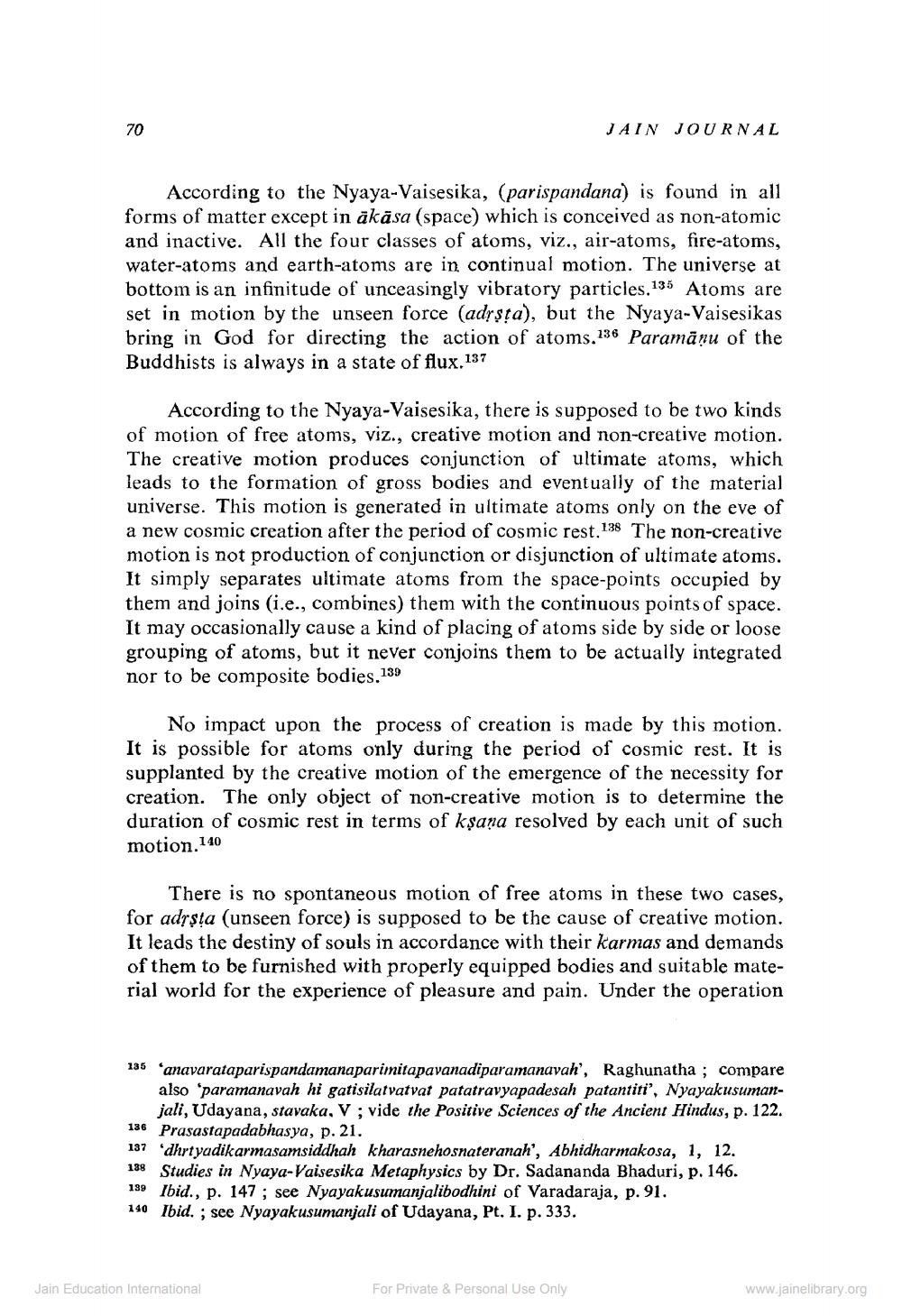________________
70
According to the Nyaya-Vaisesika, (parispandana) is found in all forms of matter except in ākāsa (space) which is conceived as non-atomic and inactive. All the four classes of atoms, viz., air-atoms, fire-atoms, water-atoms and earth-atoms are in continual motion. The universe at bottom is an infinitude of unceasingly vibratory particles.135 Atoms are set in motion by the unseen force (adrṣṭa), but the Nyaya-Vaisesikas bring in God for directing the action of atoms.136 Paramāņu of the Buddhists is always in a state of flux. 137
JAIN JOURNAL
According to the Nyaya-Vaisesika, there is supposed to be two kinds of motion of free atoms, viz., creative motion and non-creative motion. The creative motion produces conjunction of ultimate atoms, which leads to the formation of gross bodies and eventually of the material universe. This motion is generated in ultimate atoms only on the eve of a new cosmic creation after the period of cosmic rest. 138 The non-creative motion is not production of conjunction or disjunction of ultimate atoms. It simply separates ultimate atoms from the space-points occupied by them and joins (i.e., combines) them with the continuous points of space. It may occasionally cause a kind of placing of atoms side by side or loose grouping of atoms, but it never conjoins them to be actually integrated nor to be composite bodies.139
No impact upon the process of creation is made by this motion. It is possible for atoms only during the period of cosmic rest. It is supplanted by the creative motion of the emergence of the necessity for creation. The only object of non-creative motion is to determine the duration of cosmic rest in terms of kṣaṇa resolved by each unit of such motion.140
There is no spontaneous motion of free atoms in these two cases, for adṛṣṭa (unseen force) is supposed to be the cause of creative motion. It leads the destiny of souls in accordance with their karmas and demands of them to be furnished with properly equipped bodies and suitable material world for the experience of pleasure and pain. Under the operation
135 'anavarataparispandamanaparimitapavanadiparamanavah', Raghunatha; compare also 'paramanavah hi gatisilatvatvat patatravyapadesah patantiti', Nyayakusumanjali, Udayana, stavaka, V ; vide the Positive Sciences of the Ancient Hindus, p. 122. 136 Prasastapadabhasya, p. 21.
137 'dhrtyadikarmasamsiddhah kharasnehosnateranah', Abhidharmakosa, 1, 12. 138 Studies in Nyaya-Vaisesika Metaphysics by Dr. Sadananda Bhaduri, p. 146. 139 Ibid., p. 147; see Nyayakusumanjalibodhini of Varadaraja, p. 91. 140 Ibid.; see Nyayakusumanjali of Udayana, Pt. I. p. 333.
Jain Education International
For Private & Personal Use Only
www.jainelibrary.org




